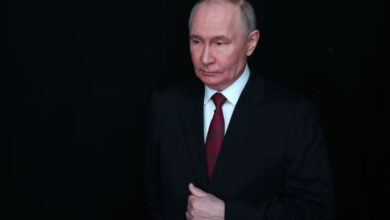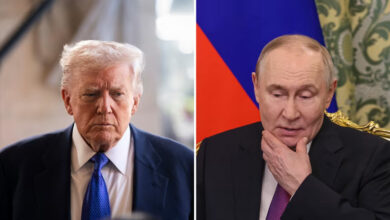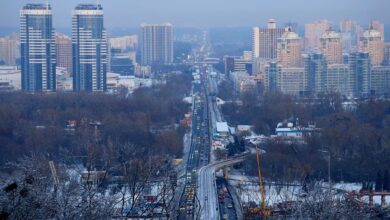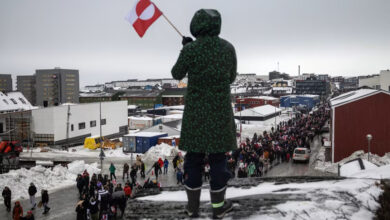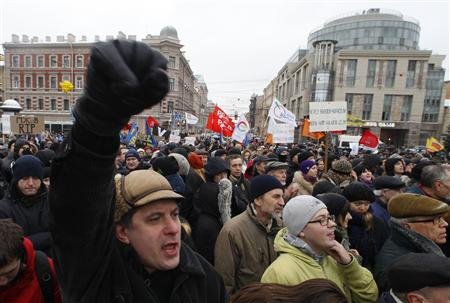
Russia's protest movement against Vladimir Putin on Saturday rallied several thousand people for a new demonstration that is a test of their strength and tactics after his crushing election victory.
The opposition movement mustered huge numbers of around 100,000 for rallies after parliamentary polls in December but are struggling to maintain their momentum after Putin won a six year term as president in the 4 March elections.
The Moscow city hall had approved a demonstration of up to 50,000 people on an avenue around the central Arbat area but AFP correspondents said around 10,000 people had gathered so far while police put the number at 3,000.
The protest movement has lost some steam since Putin's overwhelming victory and still needs to formulate a cohesive programme and overcome glaring divisions.
"We were on Bolotnaya Square and we will come again until our main demands are fulfilled," said one of the protest leaders, liberal politician Vladimir Ryzhkov, referring to the first mass anti-Putin protest in Moscow on December 10.
"These authorities are not legitimate," he said to cheers from the crowds.
Those attending the rally stressed the need to keep up pressure on the authorities. "We need to show that people aren't resigned, that the movement won't disappear," said Arkady Serinkin, 22, a student.
"It's important to put on pressure using a peaceful and civilian force," added Yury Savelyev, 49.
The protest comes a day after US President Barack Obama telephoned Putin to congratulate him on his election victory, in a call that came several days after other world leaders but underlined the importance of the relationship.
The controversy over elections and the demonstrations has on occasion tested US-Russia relations, with Putin accusing Washington of funding NGOs with the aim of questioning the polls and sparking protests.
Police were highly visible in Moscow Saturday, lurking in buses parked around the city after the last rally on 5 March ended in mass arrests when some protesters refused to leave the venue.
According to Moscow police, some 2,500 members of the security forces were on duty for the rally. They warned of plans by "certain groups" to light flares, block roads and put up tents.
Russia's consumer protection chief cautioned the public against catching cold at the rally. A "constant draught" could have "consequences for health", Gennady Onishchenko told the Interfax news agency.
Activists have said the rally would focus on violations in the presidential polls which according to independent monitoring group League of Voters "discredited the Russian presidency, the electoral system and the whole state."
Opposition liberals also planned to hold an unsanctioned march Saturday in the northwestern city of Saint Petersburg. Around 500 people were expected to attend, organiser Yury Melnichuk told Moscow Echo radio station.
After holding four mass protests over the last three months and successfully breaking the taboo against opposition rallies in Russia, the movement now faces a huge challenge to decide where to go from here.
"We need to be honest with ourselves," wrote Andrei Kolesnikov, commentator of the anti-Kremlin Novaya Gazeta newspaper.
"Changes are not going to be swift and will need long and hard political work, including the creation of new parties that are competitive even if the elections are rigged," he said.
The involvement of nationalist leaders and the sometimes inflammatory rhetoric of one of the most charismatic of the opposition leaders — the anti-corruption crusader Alexei Navalny — has also discomfited some liberals.
"For the first time in months, I am having doubts about whether to go to the next protest," Memorial human rights group head Oleg Orlov wrote on a blog for the Moscow Echo radio.
Putin, currently prime minister, won 63.6 percent of the vote in the elections and is now preparing for a May inauguration to take back the Kremlin job he held from 2000-2008 from his protege Dmitry Medvedev.

